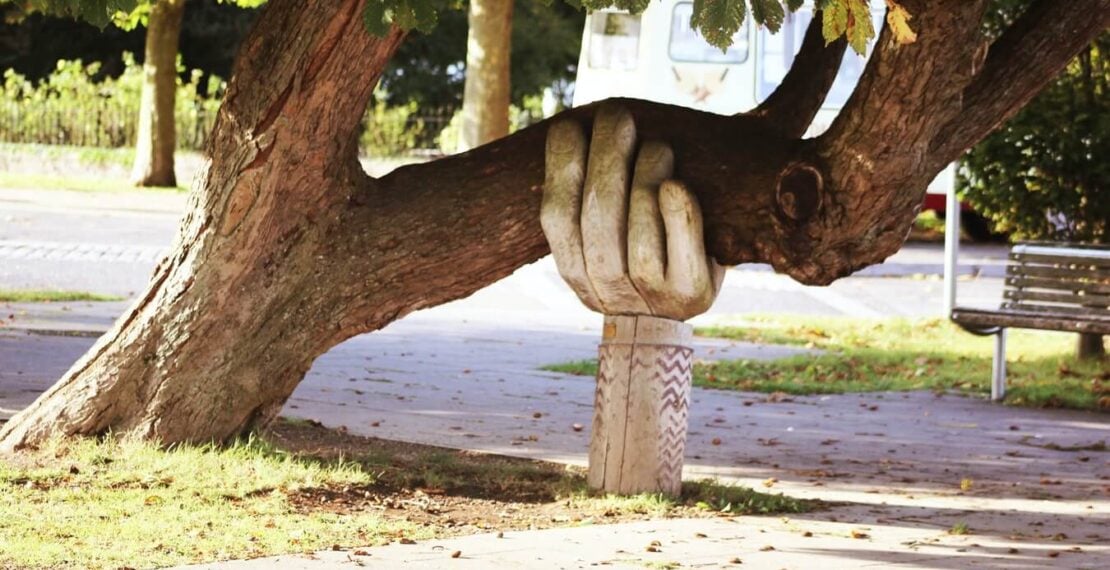When it comes to psychedelic support, it’s important to know your options.
As curious minds continue to show interest in the growing benefits of psychedelics, demystifying the different support modalities can help you get the most out of your psychedelic experience.
However, the language used in the psychedelic space isn’t always clear. As a result, the need to define commonly-used terms is growing, whether you’re navigating the space as a beginner or even as an experienced psychonaut. If you’re seeking support for your non-ordinary states, but aren’t sure what type of support you need, this primer should help.
Psychedelic guide
A “guide”, or facilitator, can be somewhat of a loose term, but we like to think of it as being similar to a tour guide at a museum or tourist attraction, leading you along the way to potential discoveries. A psychedelic guide is typically the person guiding the experience. Like a shaman, a psychedelic guide may incorporate other forms of healing or transformational tools, like sound healing, aromatherapy, drumming, etc. The main difference between a shaman and a guide is that shamanism is known to be a religious practice in reference to its direct connection to the spirit world, able to communicate and interact with spirits through an altered state of consciousness. Guides do not necessarily claim a religious or spiritual association, though religious and spiritual relevance is common in guide-led psychedelic experiences.
Trip sitter
You may have heard someone recommend a “sitter” or “trip sitter” for a psychedelic experience. Quite literal to the term, a sitter is someone who sits with you during your non-ordinary state. Typically a friend or family member, a trip sitter may offer emotional support or perform simple tasks like offering water, grabbing tissues, holding your hand, etc. The idea of a sitter is to hold space for the journeyer in case of an emergency. With services like at-home ketamine treatment, trip sitters are often a required or suggested component in treatment. Sitters should have some form of training or experience with assisting those in altered states of consciousness.

Psychedelic coach
The main role of a psychedelic coach is to guide and support the client throughout their transformational journey. Unlike a guide, a coach supports you every step of the way and is involved in all stages of the psychedelic process: from preparation, during the psychedelic experience, and post-journey in the integration and embodiment proceedings. Some duties of psychedelic coaches include goal setting, goal tracking, shadow-work, identifying insight post-journey, action plans, and accountability. Types of coaches may vary depending on specializations, like microdosing coaches, integration coaches, life coaches, etc. To determine which psychedelic coach is right for you, check out this page on psychedelic coaches.
Psychedelic therapist
If you’re seeking a licensed therapist, then a psychedelic therapist might be best for you. Psychedelic therapists are trained to leverage the psychedelic experience to heal emotional and psychological distress. They are able to provide therapy under psychedelic treatment and are equipped with training to support the experience. Involved in all stages of the therapeutic psychedelic experience, the therapist handles set and setting for the duration of the journey. Differing from a guide, psychedelic therapists often act as a listener and observer of the patient’s experience. In most cases, they are able to diagnose and treat specific mental disorders like PTSD or depression. Types of psychedelic therapists vary as their expertise is usually psychedelic and treatment specific, such as ketamine-assisted therapy for depression or MDMA therapy for PTSD. Learn more about the different types of psychedelic therapy here.
To support your wellness journey, we’ve curated, verified, and vetted trusted psychedelic therapists in our provider directory; maybe you can find the right one for you.

Know your options
Whether you’re looking for in-case-of-emergency support or need in-depth therapeutic treatment, knowing all your options is crucial before a psychedelic experience. Understanding the difference between the various types of support available will not only prepare you for your experience, but empower you to get the right support for your needs. On the plus side, given the growing number of therapists, sitters, guides, and coaches out there, there is definitely someone for everyone on any step of their journey.








I am currently working with Mind Bloom and am about to start my 3rd treatment session. I’ve done the basic course and the going deeper course and now I’m about to begin program on loving yourself.
My experience has been life changing. I know the value of the psychedelic experience and was first introduced to psychedelics in the 70’s. It was a small group of us and we did mushrooms, peyote and pure mescaline.
The ketamine dosage I take is strong but it really clears things up and out.
I am looking to source psychedelics to use when treatment is over and can use them as necessary to clean out the clutter. I have CPTSD and psychedelics are really helping relieve/change my symptoms in ways I never imagined. It’s so good to see psychedelics finally being used for mental health.
Hi Tom, our sourcing guide may be able to help 👉 https://thethirdwave.co/ultimate-guide-to-sourcing-psychedelics/